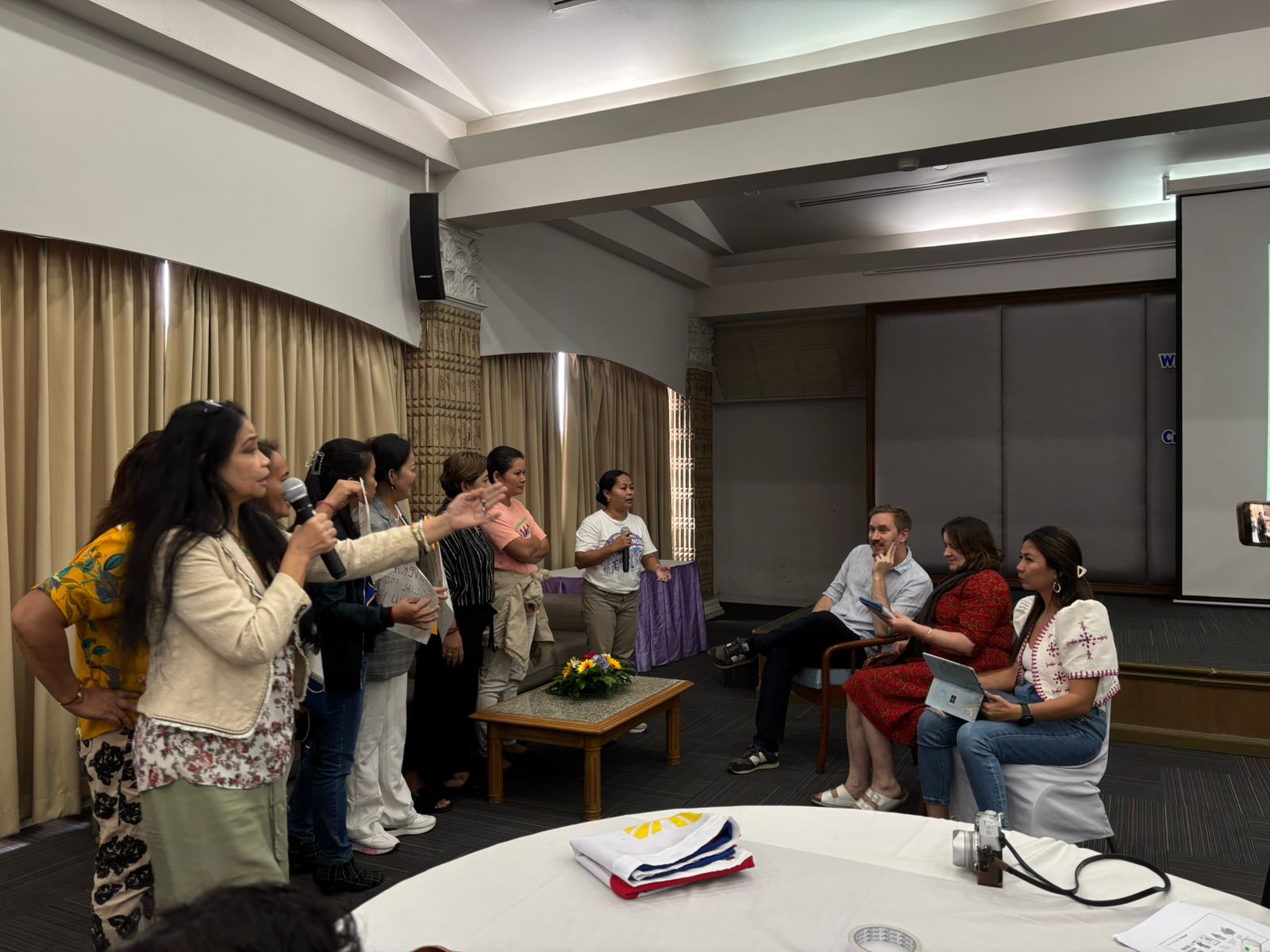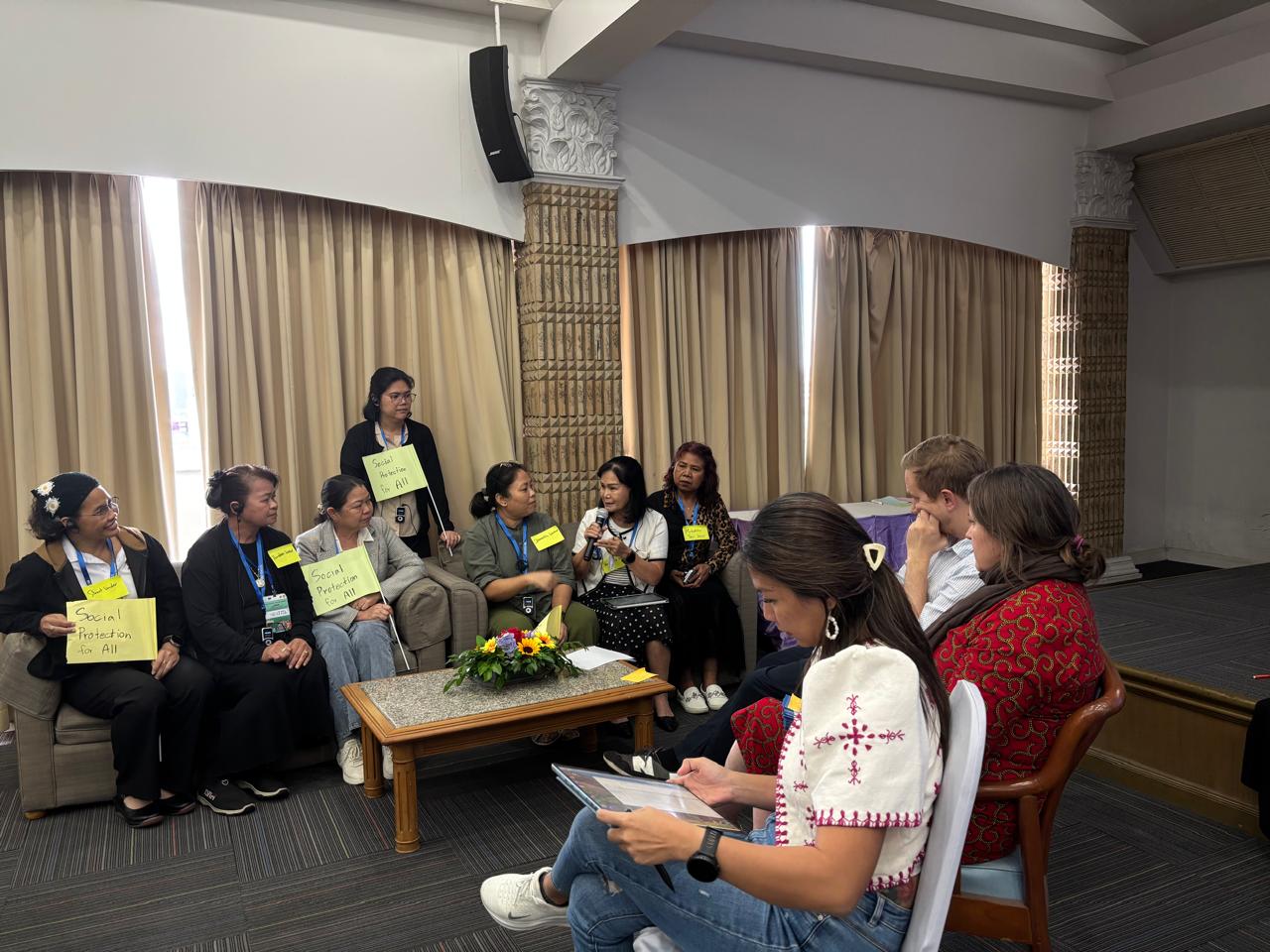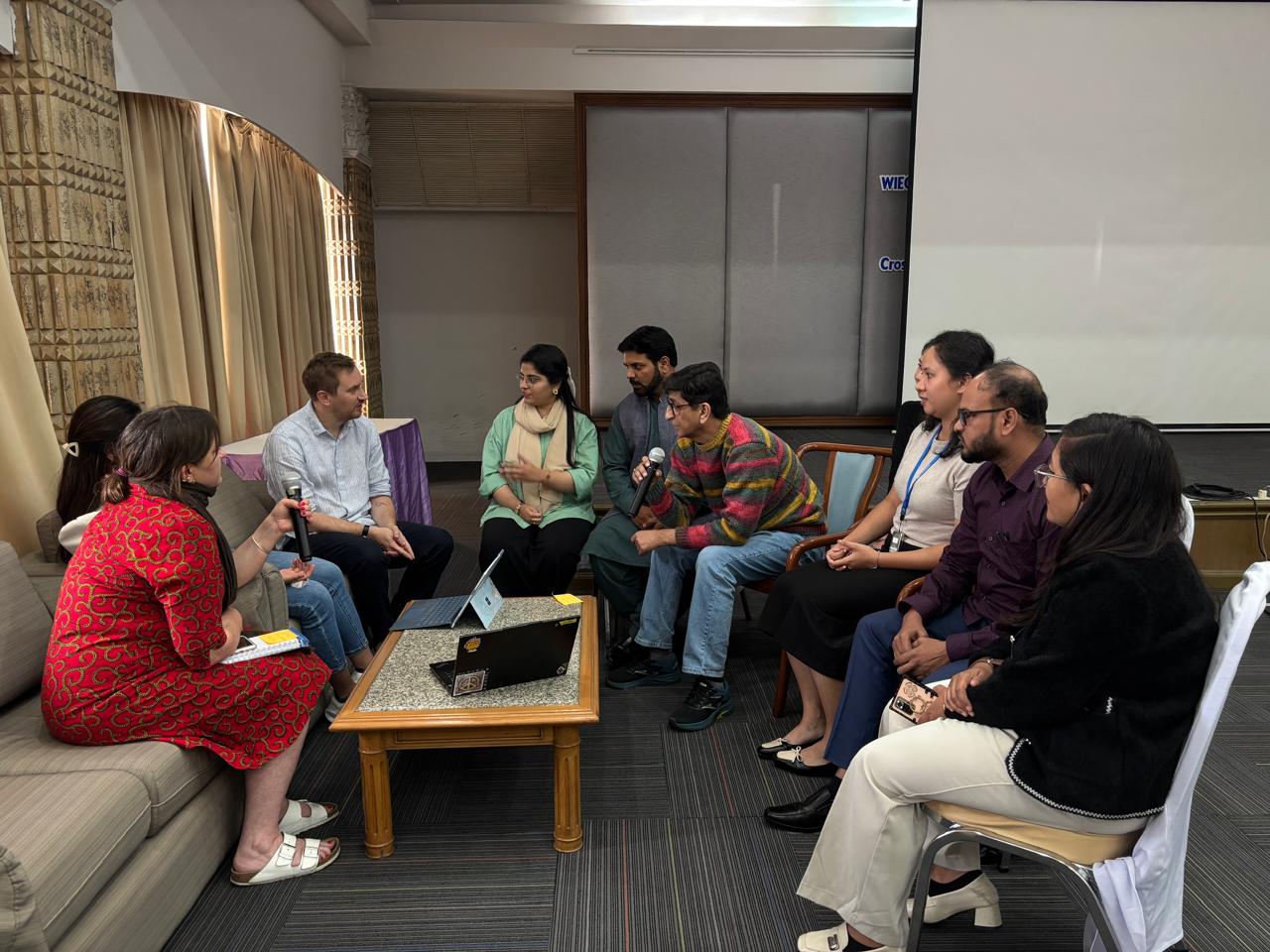![$rows[judul]](https://iycw-aspac.org/asset/foto_berita/WhatsApp_Image_2025-11-03_at_15_40_07_74b8f94b.jpg)
The Financing
Social Protection Training organized by the WIEGO Social Protection
Programme in collaboration with HomeNet SEA in Bangkok on 2–3 November 2025 served as an important
space for representatives of workers organizations from various Asian
countries to strengthen their advocacy capacity on social protection issues.
The training highlighted one of the most widely debated global topics: how to
finance an inclusive and sustainable social protection system for all workers,
including those in the informal sector—one of the groups most vulnerable to
today’s economic and social shocks.
The activity brought
together participants from diverse networks under the Asian Roundtable on
Social Protection (AROSP), including trade unions, informal workers’
organizations, NGOs, regional coalitions, and youth organizations.
In this training,
IYCW ASPAC was represented by Rony
Robiansyah, the Regional Coordinator. His presence reaffirmed YCW commitment
to ensuring that the perspectives of young workers remain an essential part of
the social protection discourse, especially amid ongoing changes in the world
of work.
The training was
attended by participants from various types of organizations actively
advocating for the expansion of social protection in the region, including
trade unions, informal workers’ organizations, social justice NGOs, regional
networks and coalitions, as well as youth and community organizations. This
diversity enriched the dialogue and broadened cross-sector understanding of
social protection financing needs in each country.
Key
Learnings from the Training
Over the course of two days, participants
gained knowledge and practical skills relevant to strengthening their advocacy
roles. The main learning points included:
1. In-Depth
Understanding of Social Protection Systems
Participants learned about social protection concepts within the life-cycle
approach, as well as the policy, program, and implementation components. This
helped identify opportunities to improve systems so that they become more
inclusive for all workers, especially those in the informal sector.
2.
Public Finance
and National Budget Analysis
The training introduced the basics of public finance and budget analysis
methods, enabling participating organizations to assess government priorities
and identify openings for advocating increased social protection funding.
3.
Cost Estimation
and Financing Gaps
By using costing tools, participants learned to calculate the financial
requirements of social protection programs and identify gaps that need to be
addressed. These skills are essential for developing realistic and
evidence-based policy recommendations.
4.
Strategies for
Creating Fiscal Space
Participants explored various options for creating fiscal space, including
progressive taxation, budget reallocation, climate-related financing
opportunities, and the use of regional frameworks. This demonstrated that
expanding social protection remains possible even when countries face fiscal
constraints.
5.
Strengthening
Economic Narratives for Advocacy
The training emphasized the importance of building strong economic narratives
to show that social protection is an investment that enhances productivity,
worker well-being, and economic stability. Participants were also equipped with
skills to counter negative narratives that often disadvantage informal workers.
6.
Developing
Follow-Up Action Plans
At the end of the activity, participants formulated action plans to be
implemented within their respective countries and organizations to strengthen
long-term social protection advocacy efforts.
The presence of
IYCW ASPAC through Rony Robiansyah
contributed to reinforcing the perspective of young workers in discussions on
social protection issues. Young people are increasingly vulnerable to economic
uncertainty, precarious employment, and limited access to social security.
Therefore, IYCW’s active involvement in this regional forum is an important
step to ensure that the needs and voices of young workers shape the direction
of social protection policies in the Asia-Pacific region.
The Financing Social Protection 2025 Training
had a significant impact on strengthening the capacity of civil society
organizations and workers’ groups across Asia. Knowledge on financing, budget
analysis, and advocacy strategies has become an important foundation for
participants to push for a stronger, more inclusive, and sustainable social
protection system. Through IYCW ASPAC’s participation, the voice of young
workers was represented in this process, highlighting the needs of a workforce
that is increasingly dynamic and vulnerable.
This activity
strengthens collective regional efforts to realize social protection that is
decent, fair, and accessible to all workers, without exception.


Write comment